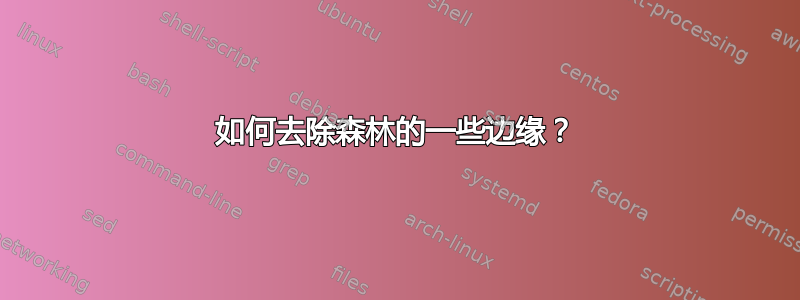
我主要在研究这个@cfr回答复制以下公式作为 LaTeX 方程:
以下是所需的状态树结构:
source:
\documentclass[border=2pt,multi,tikz]{standalone}
\usepackage{forest}
% ateb: addaswyd o ateb Ignasi: https://tex.stackexchange.com/a/351690/
\forestset{%
state tree/.style={%
for tree={
math content,
parent anchor=children,
child anchor=parent,
tier/.option=level,
calign=center,
},
where={>On>{n children}{2}}{
for nodewalk={
filter={children}{>On=!On=!&{n}{1}{n'}{1}}
}{no edge}
}{},
before computing xy={
where={isodd(n_children)}{
tempdima/.process={OOOw3+d{!n=1.s}{!n'=1.s}{n children}{(##2-##1)/(##3-1)}},
tempdimb/.option={!n=1.s},
for children={
s/.process={RROw3+d{tempdima}{tempdimb}{n}{##2+(##1*(##3-1))}}
},
}{},
},
},
}
\begin{document}
\begin{forest}
state tree,
[R
[A
[]
[b
[b_{1}
[0]
[\dot{\cup}]
[1]
]
[\times]
[b_{2}
[2]
[\dot{\cup}]
[3]
]
]
]
[\times]
[B
[c]
[]
]
]
\end{forest}
\end{document}
target:
\documentclass[border=2pt,multi,tikz]{standalone}
\usepackage{forest}
% ateb: addaswyd o ateb Ignasi: https://tex.stackexchange.com/a/351690/
\forestset{%
state tree/.style={%
for tree={
math content,
parent anchor=children,
child anchor=parent,
tier/.option=level,
calign=center,
},
where={>On>{n children}{2}}{
for nodewalk={
filter={children}{>On=!On=!&{n}{1}{n'}{1}}
}{no edge}
}{},
before computing xy={
where={isodd(n_children)}{
tempdima/.process={OOOw3+d{!n=1.s}{!n'=1.s}{n children}{(##2-##1)/(##3-1)}},
tempdimb/.option={!n=1.s},
for children={
s/.process={RROw3+d{tempdima}{tempdimb}{n}{##2+(##1*(##3-1))}}
},
}{},
},
},
}
\begin{document}
\begin{forest}
state tree,
[R
[A
[a]
[]
]
[\times]
[B
[]
[d
[d_{1}]
[]
]
]
]
\end{forest}
\end{document}
最后将它们嵌入到equation环境中:
\documentclass[border=2pt,preview]{standalone}
\usepackage{graphicx}
\usepackage{amsmath}
\begin{document}
$\Delta(\raisebox{-12ex}{\includegraphics{source.pdf}},\beta) = \raisebox{-10ex}{\includegraphics{target.pdf}}$
\end{document}
导致:
问题是,当子节点被移除时,应该如何摆脱连接父节点和子节点的边。(我只是尝试通过仅使用一个子节点并使用grow=whatever-degree选项更改边缘方向来解决这个问题;但是,这种方法既不通用,也不够可靠。)
编辑:我可以删除空节点,即[]s,最终得到如下结果:
然而,我更喜欢在这个应用程序中使用偏转边缘。
答案1
问题是当子节点被移除时,应该如何摆脱连接父节点和子节点的边。
您可以通过在节点文本后添加选项来隐藏子节点的边缘no edge。对于没有文本的节点,它看起来像[,no edge]。





